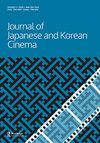Questioning ethical possibility: thigh slicing as ritual for the initiation of compassion and filial piety in Kim Ki-duk’s Pietà (2012)
引用次数: 0
Abstract
ABSTRACT Filial piety forms the core of human relations in Confucian morality. One form of filial piety is ‘filial cannibalism’, a term for incidents in which children offer their own flesh to their parents out of filial piety (Wang, Sixiang. 2012. “The Filial Daughter of Kwaksan: Finger Servering, Confucian Virtues, and Envoy Poetry in Early Chosǒn.” Seoul Journal of Korean Studies 25 (2): 175–212). One method of filial cannibalism during the Joseon dynasty in Korea (1392–1910) was thigh slicing. This motif appears in Kim Ki-duk’s film Pietà, in which the male protagonist Gangdo slices his thigh and offers his flesh to Miseon, a woman pretending to be his mother. While many studies on Pietà examine the Christian references and decode the film’s title as a reference to compassion, this study suggests there is also value in examining Confucian references. The act of cannibalism in the film can be understood as initiation of compassion and filial piety, although it is still clear that the relation between Gangdo and Miseon is based on betrayal and revenge. Arguably, filial piety– the very core of Confucian morality– can be understood as representative of Confucianism itself, similar to the way that compassion is one of the central concepts of Christianity. The film’s disturbing usage of both concepts seems to reveal what Steve Choe calls the ‘possibility of ethical impossibility’ (Choe, Steve. 2007. “Kim Ki-Duk’s Cinema of Cruelty: Ethics and Spectatorship in the Global Economy.” Positions 15 (1): 65–90).质疑伦理可能性:在金的《圣母玛利亚》(2012)中,大腿切片是引发同情和孝顺的仪式
摘要孝道是儒家道德中人际关系的核心。孝道的一种形式是“孝道食人”,这是一个术语,指的是孩子出于孝道而将自己的肉奉献给父母的事件(王,思想.2012)。《桂的孝女:朝鲜早期的侍奉、儒家美德和使者诗》,《首尔韩国研究杂志》25(2):175–212)。朝鲜朝鲜王朝(1392-1910年)的一种孝道食人方法是切大腿。这一主题出现在金基杜克的电影《Pietà》中,男主角刚道切开大腿,把肉递给伪装成他母亲的女人米森。虽然许多关于Pietà的研究都考察了基督教的提法,并将电影的标题解读为同情的提法,但这项研究表明,考察儒家的提法也有价值。电影中的食人行为可以理解为同情和孝顺的启蒙,尽管刚道和米森之间的关系显然是建立在背叛和复仇的基础上的。可以说,孝道——儒家道德的核心——可以被理解为儒家思想本身的代表,类似于同情是基督教的核心概念之一。这部电影对这两个概念的令人不安的使用似乎揭示了Steve Choe所说的“道德上不可能的可能性”(Choe,Steve,2007)。《金的残酷电影:全球经济中的伦理与观众》,第15(1)期:65-90页。
本文章由计算机程序翻译,如有差异,请以英文原文为准。
求助全文
约1分钟内获得全文
求助全文
来源期刊

Journal of Japanese and Korean Cinema
Arts and Humanities-Visual Arts and Performing Arts
CiteScore
0.60
自引率
0.00%
发文量
16
期刊介绍:
Journal of Japanese and Korean Cinema is a fully refereed forum for the dissemination of scholarly work devoted to the cinemas of Japan and Korea and the interactions and relations between them. The increasingly transnational status of Japanese and Korean cinema underlines the need to deepen our understanding of this ever more globalized film-making region. Journal of Japanese and Korean Cinema is a peer-reviewed journal. The peer review process is double blind. Detailed Instructions for Authors can be found here.
 求助内容:
求助内容: 应助结果提醒方式:
应助结果提醒方式:


